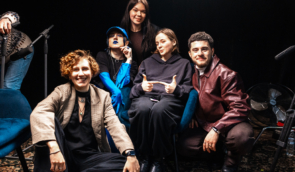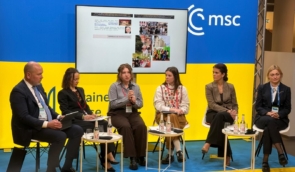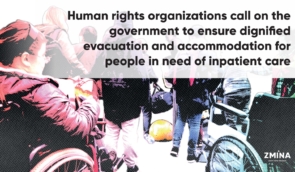Ukrainian human rights defenders visited The Hague and Brussels on an advocacy trip
From 20 to 24 May, Ukrainian human rights defenders held a series of advocacy meetings with representatives of European institutions and civil society in the Netherlands and Belgium with the support of the Netherlands Helsinki Committee. Human Rights Centre ZMINA was represented by analyst and war crimes documentarian Borys Petruniok.
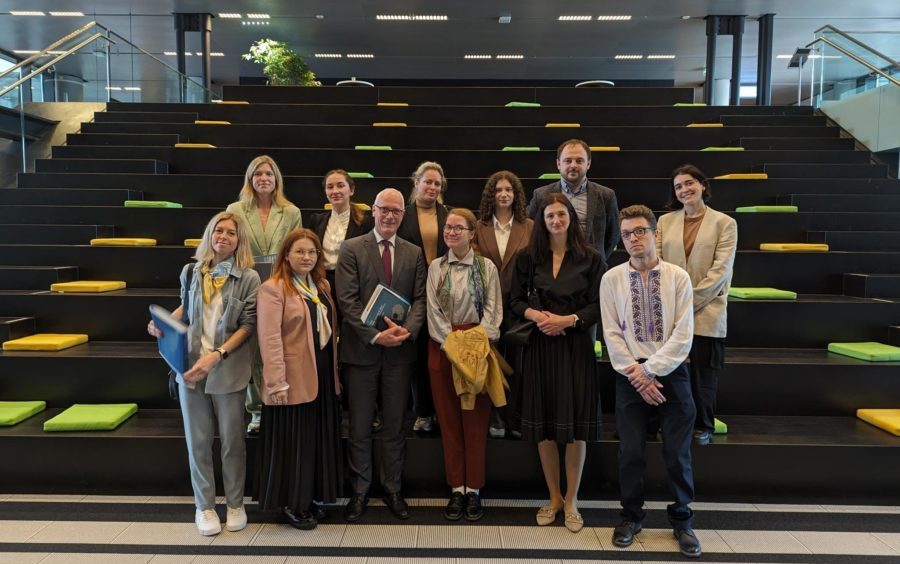 Photo: Meeting at the Ministry of Foreign Affairs of the Netherlands
Photo: Meeting at the Ministry of Foreign Affairs of the NetherlandsOn May 21-22, human rights defenders met with government officials and parliamentarians in The Hague. Despite the fact that a new parliamentary coalition is being actively formed in the Netherlands, support for Ukraine remains unchanged, as stated in the coalition agreement. Parliamentarians from the People’s Party for Freedom and Democracy are ready to continue lobbying on the Ukrainian issue in national and European institutions.
On May 22, human rights defenders also met with representatives of Dutch civil society in the format of ad hoc meetings. Given the wide range of issues that the Ukrainian delegation was able to present, four thematic dialogue tables were organised. They discussed, among other things, the return of Ukrainian children illegally deported to Russia; the attack on Ukrainian identity in the occupied territories; cases of arbitrary detention and torture of civilians in the occupied territories; and the mental dimension of the Russian-Ukrainian war.
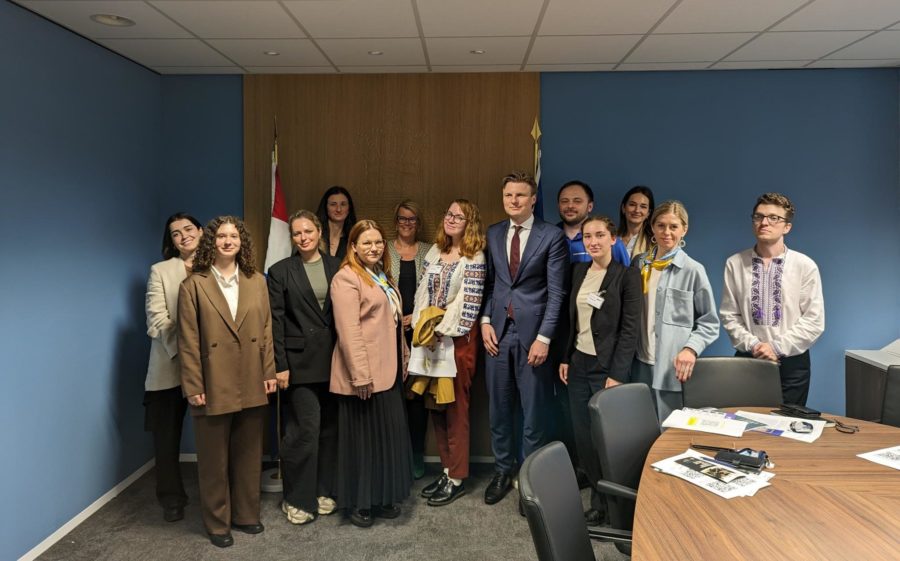 Photo: Meeting with parliamentarians
Photo: Meeting with parliamentarians“We cannot and should not consider the war crimes committed by the Russian military against Ukrainian civilians as something isolated or something that concerns only specific units. The Russian Federation uses arbitrary detention, abduction and torture of civilians as a tool to achieve long-term political goals. In particular, to intimidate the population, destroy grassroots social ties in communities, and build “occupation administrations”. The systematic use of violence against civilians identified as pro-Ukrainian can be explained by political rather than “military” motives. These include volunteers, local government representatives, and even teachers and cultural workers. Since the beginning of the Russian invasion in 2022, ZMINA has collected more than 200 testimonies from victims. In all cases, regardless of the location of the crime or the unit involved, we see that the perpetrators follow the same pattern and pursue the same general goal”, said Borys Petruniok.
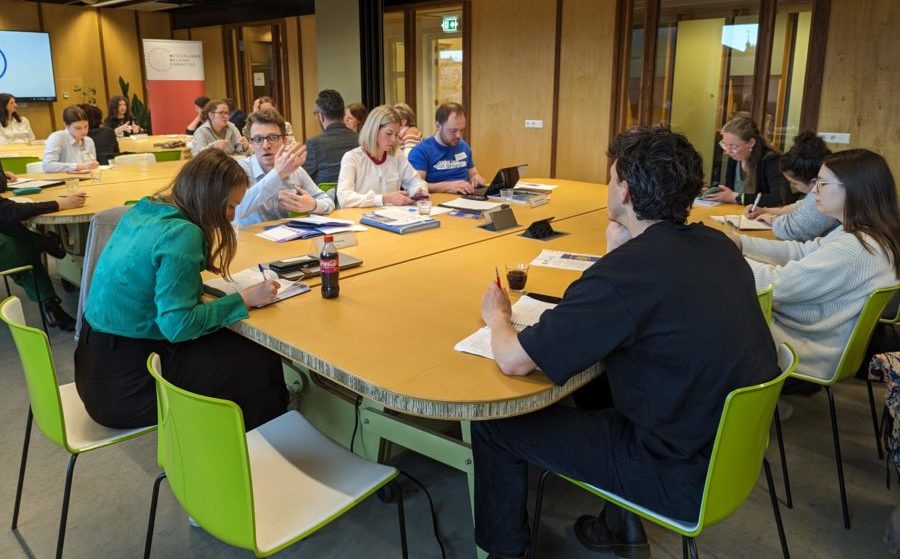 Photo: Ad hoc meeting event in The Hague
Photo: Ad hoc meeting event in The HagueOn May 23, a roundtable discussion “Advocating for Ukraine’s Accountability in the Context of the 2024 EU Elections” was held in Brussels with the participation of key local NGOs. Despite the variety of electoral challenges in the EU, European support for Ukraine should remain a priority. Due to the ongoing war, Ukrainians are deprived of the opportunity to choose. The discussions also raised the issue of increasing sanctions pressure on Russian officials directly responsible for the crimes and their families.
On May 24, the Ukrainian delegation met with representatives of the EU’s Directorate-General for Neighbourhood and Enlargement Negotiations. Human rights defenders stressed that Ukraine needs long-term support, both military and humanitarian.
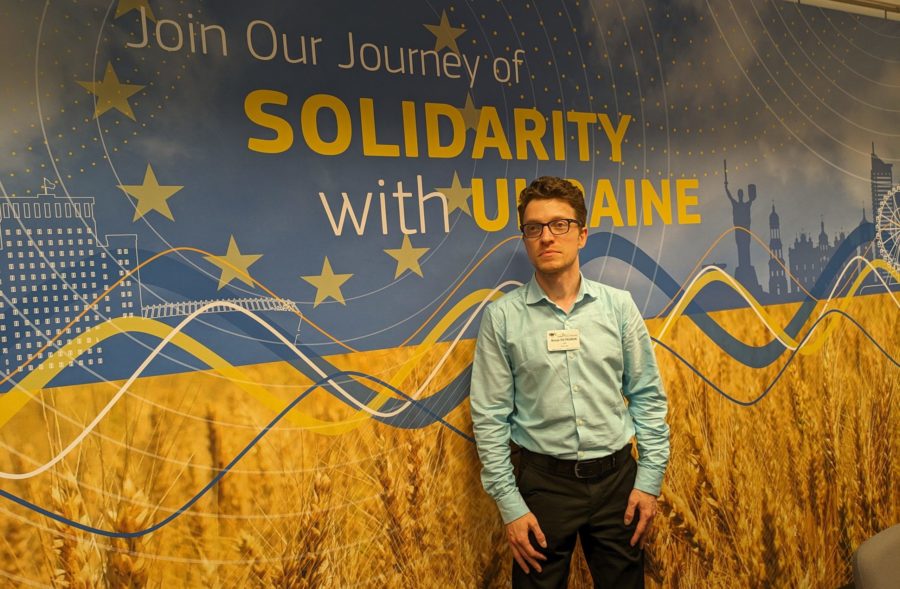 Photo: Borys Petruniok
Photo: Borys PetruniokCivil society is actively involved in the processes of documenting war crimes, collecting evidence and investigations. However, this work will not end tomorrow but will continue for a while, even after the war is over. Victims of crimes, their families and local communities affected by the war also need long-term support.
If you have found a spelling error, please, notify us by selecting that text and pressing Ctrl+Enter.

